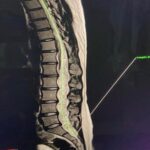New Delhi, June 17, 2022:
The systematic clinical approach of Surya Women and Child Super Specialty Hospital (SWCH), Pune has once again come to the limelight after its highly skilled paediatricians & neonatologists gave a new lease of life to an 18-day-old baby, who was suffering with congenital defect of food-pipe and windpipe besides being on mechanical respiratory support and IV medications.
On second day of life, the babyhad difficulty in breathing and abdomen distension (abnormally swollen tummy) for which she was admitted at another children’s hospital in the vicinity. There she was treated for respiratory distress syndrome (RDS), persistent pulmonary hypertension of new-born (PPHN), shock and sepsis before she was retrieved to SWCH for advanced clinical management. After closely monitoring the baby’s condition, it was observed that she had intermittent abdominal distension, copious and frothy clear ET secretions while on mechanical ventilation. All these symptoms led to suspicion of H type TEF.
A CT scan of the neck and thorax was performed and the diagnosis was confirmed with video bronchoscopy, which revealed a fistula 0.5 cm above the carina (the ridge of the breastbone). A pleural patch was placed to prevent refistulization after the baby was operated on via a highly complicated posterolateral thoracotomy approach. During surgery there was the risk of bleeding, infection, injury to blood vessels and vital organs.
“H type TEF is an abnormal connection between the oesophagus and the trachea. Congenital TEF can arise due to failed fusion of the trachea esophageal ridges during the third week of embryological development. Congenital isolated TEF (H-type) is a rare disorder. This anomaly accounts for about 4% of tracheoesophageal malformations and has an incidence of around 1:50 000–80,000 births. Cyanosis, cough and choking with feeding, recurrent chest infections and persistent gastrointestinal distension are the prominent symptoms of this condition.
These symptoms are usually confused with common neonatal problems such as RDS, PPHN, etc and the diagnosis can be missed as was the case here. A high index of suspicion is needed to diagnose this condition. Complications after H type TEF repair include esophageal anastomotic leak, esophageal stricture, gastro esophageal reflux, recurrent fistula, and tracheal obstruction. But, in this case the baby was hemodynamically stable throughout surgery and post operative also the baby went home without any complication,” said Dr Sachin Shah, Director – Neonatal and Pediatric Intensive Care Services, Surya Women and Child Super Specialty Hospital (SWCH), Pune.
Post the complicated surgery, her congenital defect was corrected and she is perfectly healthy with no further requirement of clinical management or precautions. She was discharged on 22 days of life without any complication during the surgery and postoperative care we well. The positive output in this case is wholly credited to the hospital’s systematic clinical approach, which enabled the doctors to find out the cause of disease and rule out
any anatomical defect. Other members from the Hospital’s Pediatric team who were actively involved in ensuring timely clinical care of the baby included Neonatal Intensivists Dr Amita Kaul, Dr Jayant Khandare & Dr Ganesh Shiwarkar and Pediatric Surgeon Dr AdarshHegde.
healthysoch






